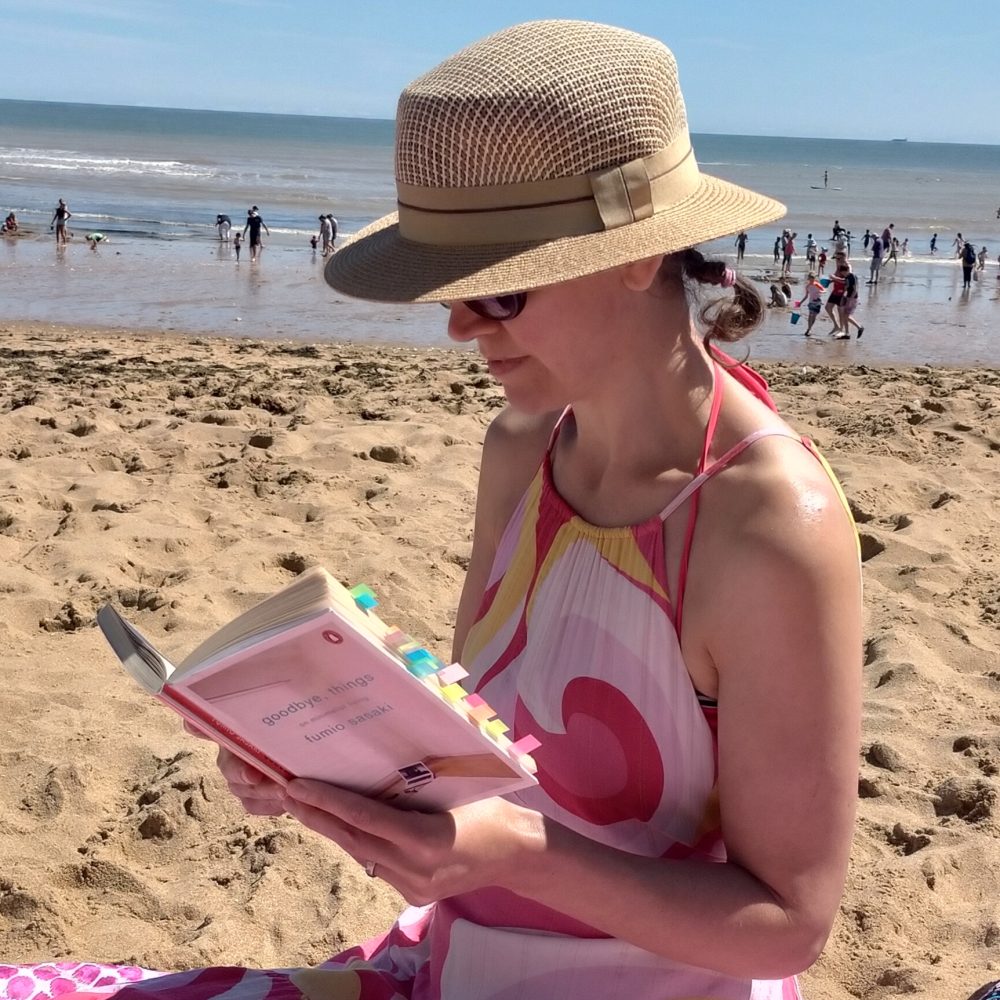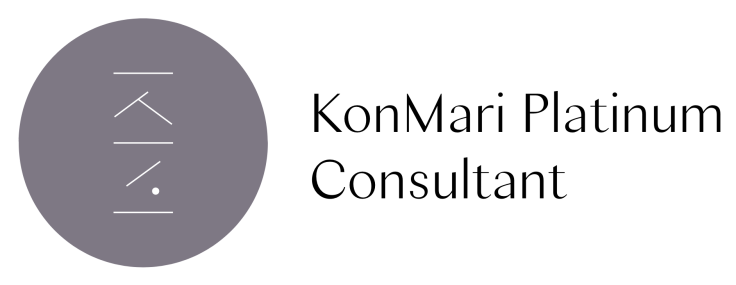Are you ready to say goodbye to your things, and hello to a clutter-free home? Even when minimalism isn’t something you want to go for, I think Fumio Sasaki’s book “Goodbye, Things” can still be very inspirational if you only want to declutter your home a bit. Sasaki tells us why and how he’s gone minimalistic – sharing more than 50 tips on the ‘how’. There’s also a chapter on the benefits of living with the bare minimum. And you don’t need to go completely minimal to enjoy these benefits; simply reducing your stuff a little bit will make you experience these benefits too.
Lack of motivation to get rid of your things?
In this blog, I’ll share some insights from “Goodbye Things” that hopefully will spur you on to either start or continue decluttering, depending where you are on your decluttering journey. Personally, I find it really helpful to be reminded of the why and how when trying to create a new habit or lifestyle. I do this by reading books and articles about the subject. You might be the same, and hopefully this blog post will give you some inspiration and motivation, either to start decluttering or keep going.
Why we do end up with so many things?
“We often find ourselves unhappy after we’ve owned something for a while. The novelty of the new stimulus wears off, and the item becomes a part of our lives that we now take for granted.”
According to Fumio Sasaki this is the reason why we end up with so many things in our home. When the novelty wears off, we buy something new again. I think there are also other reasons why people keep on buying things.
- Treating yourself after an especially hard day or week.
- Boredom at work or at home.
- Wanting a shot of the happy hormone dopamine.
I guess doing this once in a while won’t do any harm, but we can also tackle these issues by doing other things that won’t clutter up our homes.
How to avoid getting even more things?
According to Fumio Sasaki, only an attitude of gratitude can prevent the cycle of familiarity leading to boredom leading to wanting new things, which you’ll also get bored of again. This is what he says about it:
“Gratitude allows us to see our everyday life with a fresh perspective – we won’t continue to take things for granted if we become aware of our appreciation for them. Through gratitude, we can trigger sustainable stimulation, which gives us much more peace than the stimulation that we get by buying something new or increasing our stockpile.”
Do you already keep a gratitude journal? You might currently be reflecting on accomplishments you’re proud of, something cute or funny your children said, simple daily pleasures, or something about your body or health that you’re grateful for. Perhaps you can also include a little appreciation for the things in your home. Say thanks to those black trousers that you can always rely on to make you feel good. Utter another thanks to the knife that cuts your favourite bread in perfect slices. Also say thanks to your cosy sofa, roomy built-in storage, comfortable shoes, cool artwork on your walls.
The benefits of fewer things
I’d like to list a few of the positive side effects of decluttering that Fumio Sasaki talks about in his book Goodbye, Things.
Save time
It’ll be quicker to choose your outfit in the morning when you only possess clothes that you like. Cleaning is quicker with less clutter. You’ll spend less time looking for missed items. If you’re moving home, packing and unpacking will be quicker.
Focus better
I love how Sasaki explains how our material possessions talk to us and he calls this the “silent to-do list”:
“A dead lightbulb that has yet to be replaced: Don’t tell me your forgot to buy my replacement again! Why can’t you do something so simple? Or a stack of dirty dishes: Here we go again. I can never count on you. Imagine what your TV might be saying to you: Uh, you have a bunch of recordings that you haven’t watched yet. Oh, and maybe it’s about time you gave me a light dusting.”
“I suspect that when we’re feeling lazy or unmotivated, it’s either because our to-do list is too long or we’re surrounded by so many menial tasks that we can’t get around to doing what’s important. If we overload our brains, we’ll freeze up just like old computers. Reduce your possessions and you’ll receive fewer messages from them.”
To summarise: less things = less distractions/noise = more focus!
Save money
After reducing your things, you’ll become more selective at the buying stage, which according to Sasaki, and I wholeheartedly agree, “means less money wasted on frivolous purchases”. Also, you’ll no longer be wasting money on buying duplicate items, because you couldn’t find the item in your home.
Better relationships
Feeling irritable with the people you live with? Fumio Sasaki explains how reducing your possessions will help with this. “The more material possessions you have, the more energy you need to handle your everyday household chores. You become stressed, then frustrated, and you’re likely to want to blame those who aren’t eager to help out. Discard your things as much as possible […] and there will be fewer things to trigger frustration and friction.”
How to declutter your things
Sasaki lists more than 50 tips on how to declutter your things. And for each piece of advice, he gives a lot more detail than only the quotes that I’m sharing below. I only have space to share a few of his tips here. Hopefully enough to give you the motivation and inspiration to start decluttering and keep going!
If it’s not a “hell, yes! It’s a “no”
When you discard something, you gain more than you lose
Take photos of the items that are tough to part with
Let go of the idea of “someday”
Don’t get hung up on the prices that you initially paid
If you lost it, would you buy it again?
Discarding memorabilia is not the same as discarding memories
We feel greater satisfaction when we own and treasure one irreplaceable coffee cup than we do when we have two or three mugs that we aren’t particularly crazy about.
Ready to say goodbye to your things?
I find that reading an inspirational book can be a great way to propel me into action. I hope this blog has given you the encouragement, motivation, and inspiration to get going. If you’d like any further reading suggestions, please do get in touch!



